Egypt opens legislative polls set to consolidate rule of Cairo's dictator
Polls have opened in Egypt for undemocratic parliamentary elections designed to be dominated by backers of the despotic former army strongman-turned-President Abdel Fattah al-Sisi and due to stretch over several weeks.
The first round of voting began Saturday and will be concluded on Sunday, with a second round scheduled for November 7-8 and run-offs due to be conducted in late November and early December in an election in which the US-backed al-Sisi will directly appoint up to 28 legislators.
The elections are taking place under a new electoral law in which 50 percent of 568 contested seats will be allocated to pre-selected lists -- a scheme critics say is aimed at benefiting al-Sisi’s supporters.
This is while the autocratic president has overseen brutal crackdown on political opponents since leading the 2013 overthrow of elected president Mohamed Morsi -- from the widely popular and now-banned Muslim Brotherhood Organization – in a military coup. Morsi was later sentenced to death and died in prison in June 2019 while being retried following world-wide criticism of his death sentence.
Both Islamists and liberal opponents are being targeted by the Cairo regime in the new electoral process.
According to press reports, the government-sanctioned Mostaqbal Watn (Nation's Future) Party – founded in 2014 by members of the regime’s military intelligence and reconnaissance apparatus – which grabbed nearly three-quarters of the contested seats last August in an election for Egypt's Senate, an advisory body -- is favored to come out top.
Supporters of al-Sisis claim the measures have been necessary to stabilize the Saudi-financed country and carry out economic reforms spelled out by Western economists and international financial institutions.
The development came two days after the New York-based Human Rights Watch (HRW) strongly denounced Egyptian authorities for executing at least 49 prisoners, including two women, in just 10 days.
HRW further declared in a Thursday statement that it compiled the executions between October 3 and 13 from reports in pro-government newspapers, adding that of the 49 killed, 15 were convicted of alleged involvement in political violence following the toppling of Morsi’s democratically-elected government by al-Sisi.
Earlier this month, the UK-based Amnesty International (AI) also called on Cairo to release hundreds of people who were arrested in September during anti-government protest rallies.
“Egyptian security forces have used tear gas, batons, birdshot, and on at least one occasion live ammunition, and arrested hundreds of protesters and bystanders to disperse rare scattered demonstrations over several days,” AI said in a statement at the time.
According to videos circulated on social media, Egyptians, including sympathizers of the now-outlawed Muslim Brotherhood, staged demonstrations in several villages across the country from mid-September.
The protests came amid outrage, especially in rural and low-income areas, against government campaigns to demolish illegal construction nationwide, which require people to pay fines to legalize home ownership.
The demonstrations also took place after an online call by exiled Egyptian businessman Mohamed Ali, who originally called for anti-regime protests in September last year, accusing al-Sisi of corruption.
VIDEO | Former FBI agent criticizes US Congress for 'outright corruption'
IRGC chief urges Muslim countries to cut aid routes to Israel
'New chapter in cooperation': Iran, Venezuela sign new MoUs
Jordan sentences former lawmaker for supporting Palestinian resistance
Basij volunteer forces hold massive drills in southwestern Iran
Israeli war criminals 'not welcome', US city says after ICC ruling
US vetoing of Gaza ceasefire resolution ‘disgraceful’: Iran’s UN envoy
VIDEO | IAEA adopts anti-Iran resolution tabled by E3




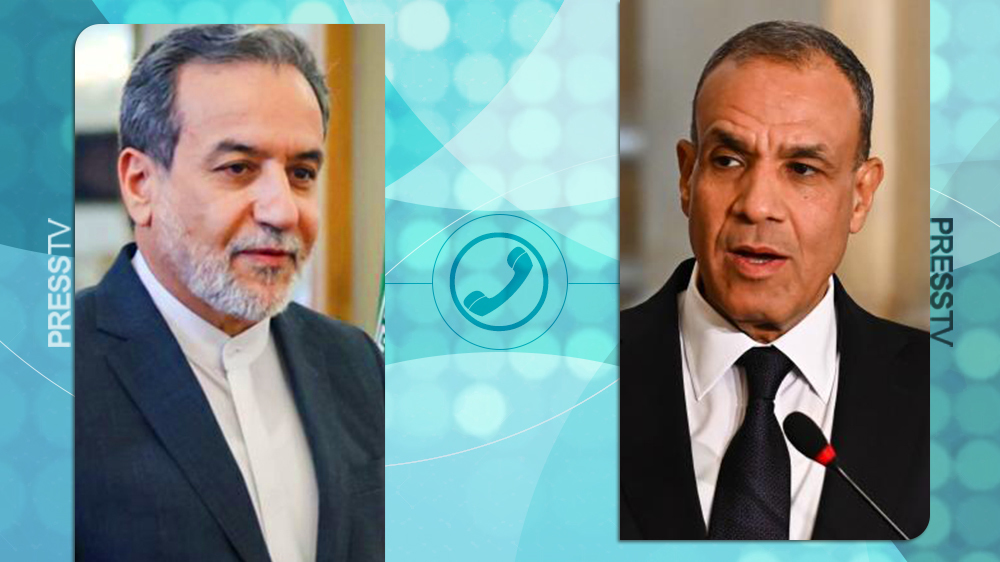
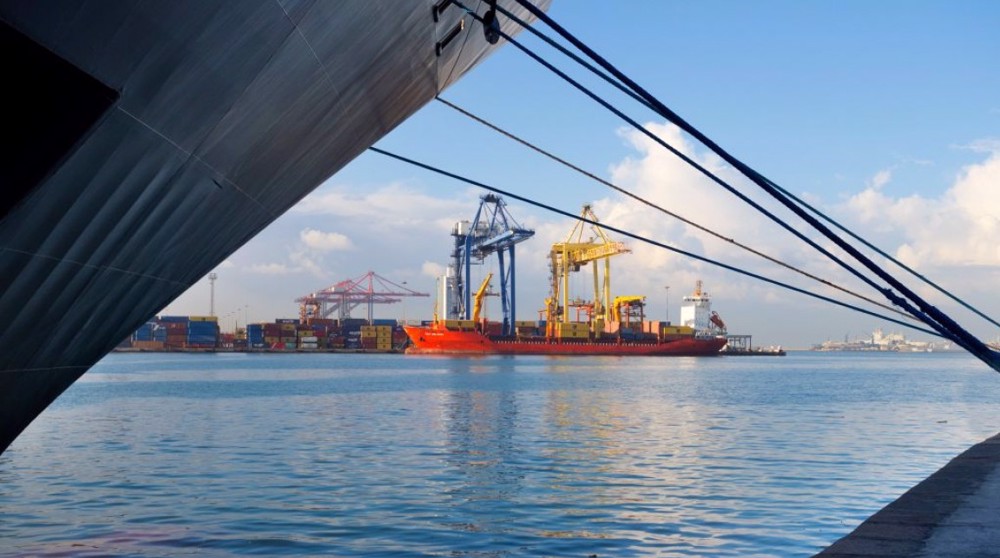
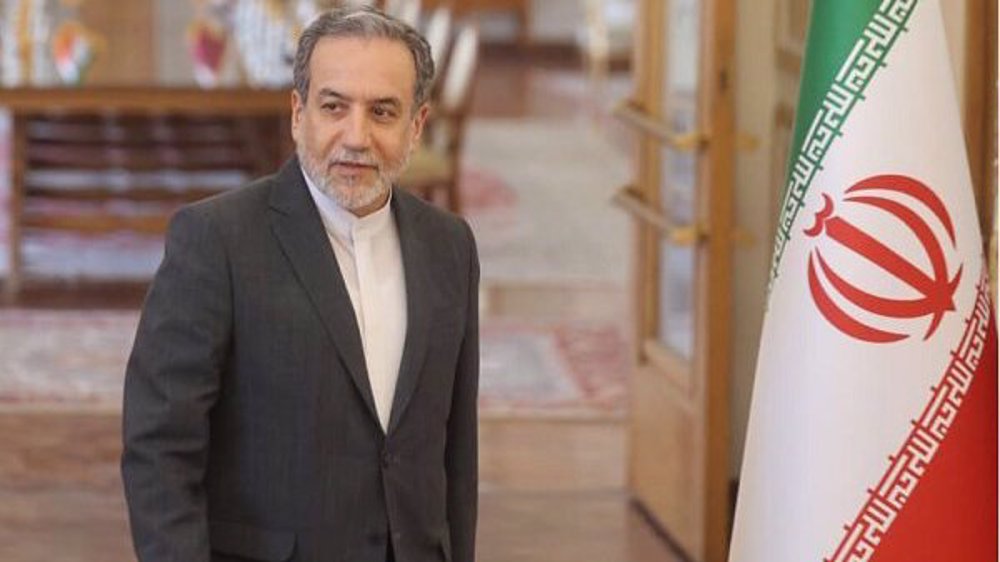




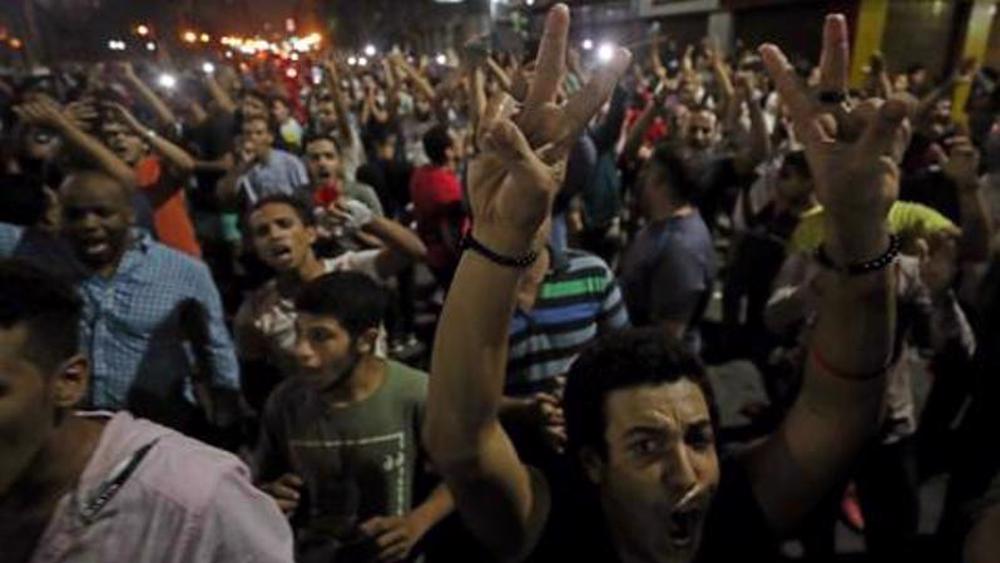
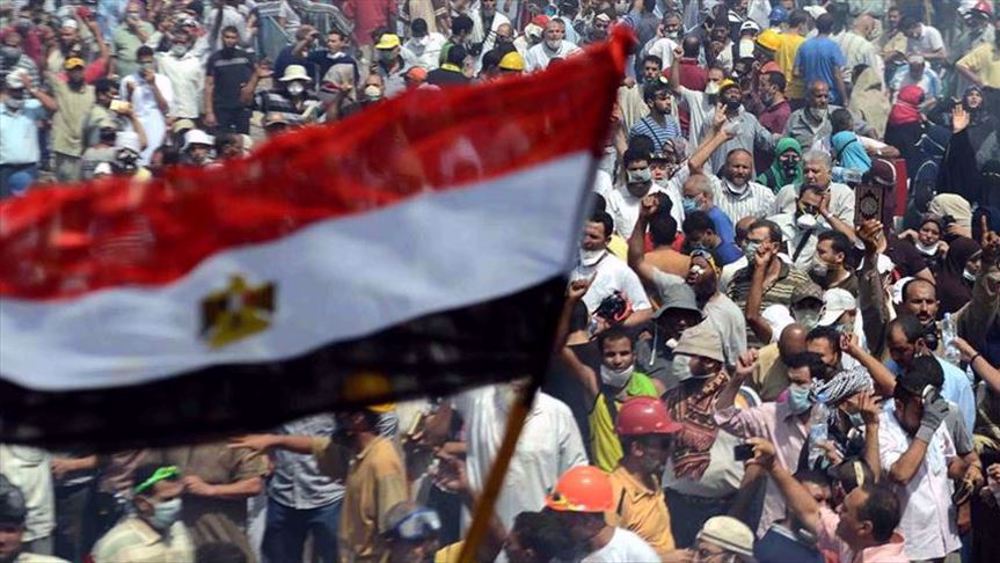
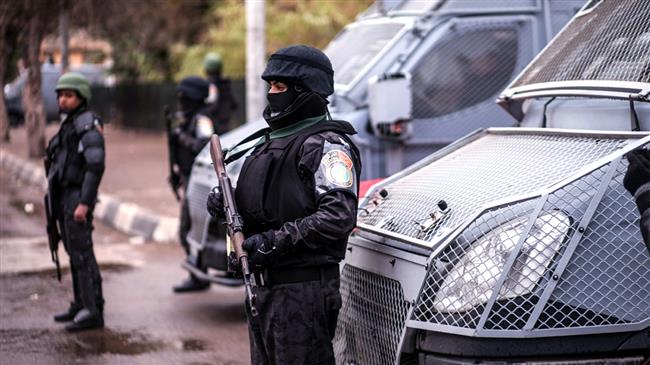

 This makes it easy to access the Press TV website
This makes it easy to access the Press TV website